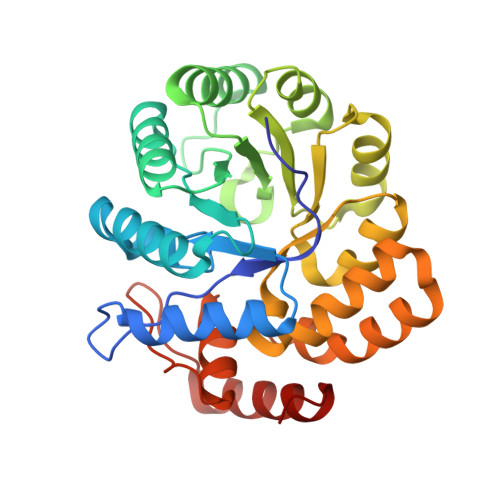Cloning and characterisation of dihydrodipicolinate synthase from the pathogen Neisseria meningitidis.
Devenish, S.R.A., Huisman, F.H.A., Parker, E.J., Hadfield, A.T., Gerrard, J.A.(2009) Biochim Biophys Acta
- PubMed: 19236959
- DOI: https://doi.org/10.1016/j.bbapap.2009.02.003
- Primary Citation of Related Structures:
3FLU - PubMed Abstract:
Neisseria meningitidis is an obligate commensal bacterium of humans, and also an important human pathogen. To facilitate future drug studies, we report here the biochemical and structural characterisation of a key enzyme in (S)-lysine biosynthesis, dihydrodipicolinate synthase (DHDPS), from N. meningitidis (NmeDHDPS). X-ray crystallography revealed only minor structural differences between NmeDHDPS and the enzyme from E. coli at the active and allosteric effector sites. The catalytic capabilities of NmeDHDPS are similar to those of the enzyme from E. coli, but intriguingly NmeDHDPS is subject to substrate inhibition by high concentrations of the second substrate, (S)-aspartate semialdehyde, and is also significantly more sensitive to feedback inhibition by (S)-lysine. This heightened sensitivity to inhibition at both active and allosteric sites suggests that it may be possible to target DHDPS from N. meningitidis for antibiotic development.
Organizational Affiliation:
School of Biological Sciences, University of Canterbury, Christchurch, New Zealand. sean.devenish@canterbury.ac.nz
















